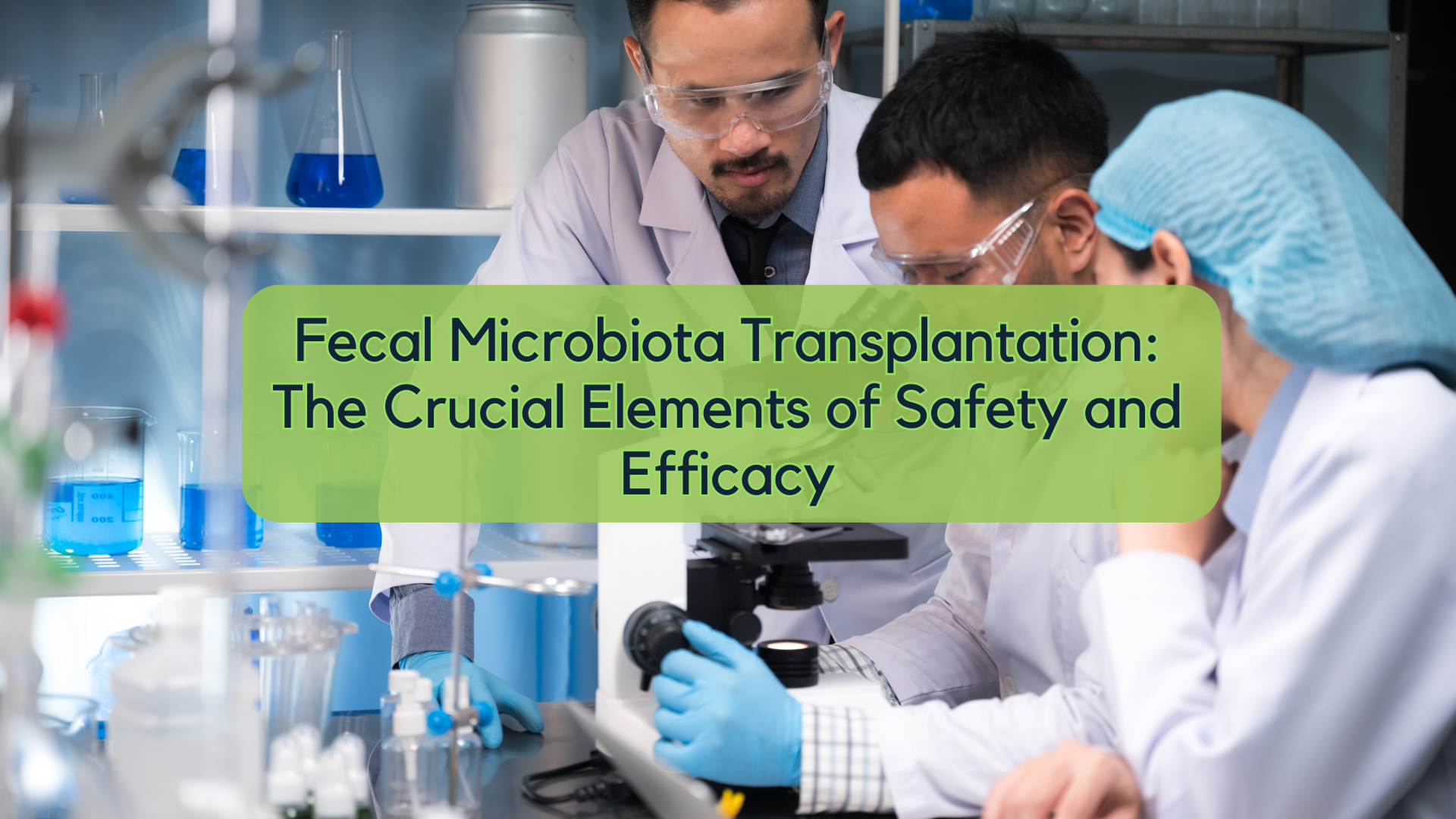In recent years, extensive research has shed light on the intricate relationship between our gut bacteria and the development of various diseases, including MS 1,2. If you're curious about how the trillions of bacteria in our gut may influence multiple sclerosis (MS), and how fecal microbiota transplantation (FMT) is being explored as a potential treatment, you're in the right place. So, let's dive into the research and better understand the connection between the gut microbiome and MS and what we know about FMT as a treatment option.
The Gut Microbiome and Multiple Sclerosis:
Did you know that our gut is home to a bustling community of microorganisms? These microscopic inhabitants, collectively known as the gut microbiome, have been linked to various aspects of our health and the development of many chronic conditions 3–13. Surprisingly, recent research has unveiled a potential connection between the gut microbiome and multiple sclerosis, a chronic autoimmune disease affecting the central nervous system 1,14–17.
Emerging evidence suggests that alterations in the gut microbiota composition may play a vital role in modulating the immune system and maintaining a healthy balance within our bodies 2,18–22. Disruptions in this delicate equilibrium in the gut may contribute to the onset or progression of MS, though clinical research is still scarce and inconclusive 1,23. There are some consistencies in the research, such as differences in the composition and diversity of gut bacteria as well as decreased short-chain fatty acid-producing bacteria in individuals with MS 2,17,24–27. These findings suggest that the gut microbiota may play a role in the development and progression of MS 1,2,17.
Fecal Microbiota Transplantation and Multiple Sclerosis:
Although the mechanisms are still being unravelled, evidence suggests that an imbalance in the gut microbiome could contribute to the inflammation and damage experienced by individuals with MS, which has made fecal microbiota transplantation (FMT) an area of interest for clinical research 14. Fecal microbiota transplantation (FMT) is a therapeutic approach that involves transferring specially prepared stool material from a healthy donor into the gastrointestinal tract of a recipient 3,9,13,28. The aim is to restore a more balanced and diverse gut microbiome and potentially alleviate disease symptoms 12,29,30. FMT has gained new attention as a potential treatment for MS due to its ability to modulate the gut microbiota and potentially influence the immune system's response 12,21,29–36.
While research on FMT and MS is in its early stages, initial findings are very promising 33,37,38. While human studies on FMT and MS are limited, some pilot clinical trials have demonstrated encouraging outcomes and shown that in this population, FMT appears to be safe, well tolerated and improves gut microbiome composition 37,38. In one recent pilot clinical trial, individuals with relapsing-remitting MS received FMT from healthy donors. FMT treatment provided a sustained and durable impact on the gut microbiome composition and clinical features of MS patients for the 52 weeks period of the study. This study showed positive changes in MS clinical features, including improvements in gait, walking and balance measures, as well as maintained normal GI symptoms with no RRMS symptoms relapses 38.
Conclusion
The role of the gut microbiome in multiple sclerosis provides a potential avenue for novel treatments. Although research on FMT as a therapeutic option for MS is still in its early stages, it stands out as an exciting experimental approach with preliminary findings showing promising results. However, further research is necessary to establish the safety, efficacy, and long-term effects of FMT in treating MS. Stay tuned as we continue to unravel the mysteries of the gut microbiome and its impact on multiple sclerosis.
At Novel Biome, we're passionate about the importance of the gut microbiome and the transformative potential of Fecal Microbiota Transplantation (FMT) treatment to restore health. As an FMT contract manufacturer, we leverage our years of experience in FMT to manufacture high-quality FMT products utilizing our highly-screened donors and stringent manufacturing standards. If you are interested in learning more about our FMT products and manufacturing capabilities, please contact us HERE or to register as a clinical partner to order FMT products, click HERE.
References: 1. Altieri, C. et al., 2023, 2. Wu, N. et al. 2023, 3. Choi, H. H. & Cho, Y.-S. 2016, 4. Hooper, L. V. et al., 2012, 5. Johnson, D. et al., 2020, 6. Lee, L.-H. et al. 2019, 7. Lee, M. & Chang, E. B. 2021, 8. Perez-Muñoz, M. E. et al., 2017, 9. Ser, H.-L. et al., 2021, 10. Sommer, F. & Bäckhed, F. 2013, 11. Ternes, D. et al. 2020, 12. Wilson, B. C. et al., 2019, 13. Xu, M.-Q. 2015, 14. Dunalska, A. et al., 2023, 15. Esmaeil Amini, M. et al. 2020, 16. Noto, D. & Miyake, S. 2022, 17. Ordoñez-Rodriguez, A. et al., 2023, 18. Belkaid, Y. & Hand, T. W. 2014, 19. Bosco, N. & Noti, M. 2021, 20. Cekanaviciute, E. et al. 2017, 21. Soveral, L. F. et al. 2022, 22. Thursby, E. & Juge, N. 2017, 23. Jangi, S. et al. 2016, 24. Cantoni, C. et al. 2022, 25. Cox, L. M. et al. 2021, 26. Levi, I. et al. 2021, 27. Saresella, M. et al. 2020, 28. Gupta, S. et al. 2021, 29. Khanna, S. et al. 2017, 30. Song, Y. et al. 2013, 31. Frisbee, A. L. & Petri, W. A. 2020, 32. Kelly, C. R. et al. 2016, 33. Makkawi, S. et al., 2018, 34. Shankar, V. et al. 2014, 35. Staley, C. et al., 2016, 36. Zeng, W. et al. 2019, 37. Al, K. F. et al. 2022, 38. Engen, P. A. et al. 2020.


 By: Dr. Shaina Cahill, Ph.D. (Director Of Operations and Medical Affairs)
By: Dr. Shaina Cahill, Ph.D. (Director Of Operations and Medical Affairs)





